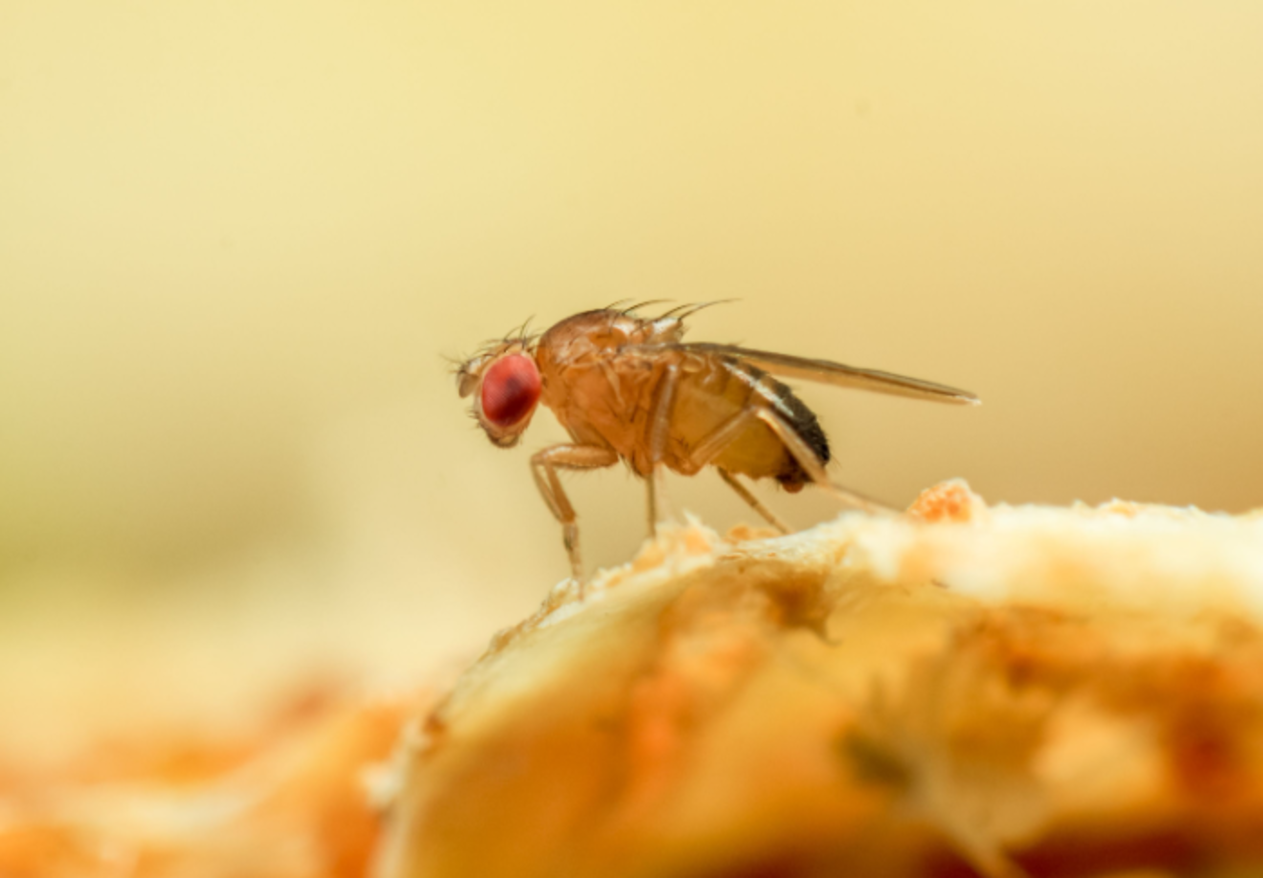Uninvited Guests: Understanding & Managing Fruit Flies

All summer long, your kitchen has been a breeding ground for insects. Fruit flies, in particular, seem to have the time of their lives during the warmer months. You sought advice from your grandma and Aunt Kaat and diligently followed our tips, yet the pesky flies continue to plague you. How can this be?To help you effectively prevent and combat fruit flies, let’s take a closer look at these critters: who they are, what they do, and what drives them.
Where Do Fruit Flies Come From?
Fruit flies, also known as Drosophila melanogaster, are attracted to ripe, fermenting, or rotting fruits and vegetables. They are common in households, grocery stores, and anywhere food is stored. Their life cycle consists of four stages: egg, larva, pupa, and adult fly. An adult female can lay up to 800 eggs in her short life, usually in sugary and decaying organic materials.
Longer-than-a-Day Fly
The life of a fruit fly is relatively short but never boring. During its existence, the fly undergoes a metamorphosis from egg to larva, pupa, and finally adult fly. This entire process takes longer than 24 hours. In ideal conditions, such as at a temperature of 29 degrees Celsius, the fly develops quickly and can live for up to a month. This explains why fruit flies thrive especially well in the summer.
Health Risks of Fruit Flies
Although fruit flies are mainly a nuisance, they can also pose health risks:
- Contamination: Fruit flies can carry bacteria and other pathogens from dirty surfaces to food and food preparation areas.
- Food Spoilage: They accelerate the spoilage of fruits and vegetables, leading to food waste and potential foodborne illnesses.
- Allergic Reactions: Some people may experience allergic reactions to the presence of fruit flies, such as respiratory issues or skin irritations.
Why You Can Never Completely Avoid Fruit Flies
Despite all efforts, a completely insect-free kitchen is an illusion. Fruit flies can reproduce outside your kitchen and lay their eggs on fruit in the supermarket. When you bring this fruit home, an infestation can occur even in the most spotless house. Females can store sperm for up to two weeks and lay their eggs wherever they want. Additionally, they find their way inside through the smallest cracks in your walls and floors.
Tips to Prevent Fruit Flies
While you can never completely eliminate fruit flies, you can drastically reduce their numbers with a few simple tips:
- Proper Food Storage:
- Store ripe fruits and vegetables in the refrigerator.
- Use airtight containers for leftovers and opened food packages.
- Regular Cleaning:
- Clean kitchen surfaces, sinks, and floors regularly to remove food residues.
- Empty trash cans frequently and ensure they have tightly sealed lids.
- Avoid Overripe Fruit:
- Regularly check for and dispose of overripe or rotting fruits and vegetables.
- Buy less fruit and vegetables to prevent spoilage.
- Trap and Remove Fruit Flies:
- Set up homemade traps using apple cider vinegar and a few drops of dish soap in a bowl covered with plastic wrap with small holes.
- Alternatively, use commercial fruit fly traps.
- Seal Entry Points:
- Repair window screens and seal gaps around doors and windows to keep fruit flies out.
Conclusion
Fruit flies are persistent and inevitable visitors, especially during the warmer months. By understanding where they come from and why they keep coming back, you can take steps to minimize their presence. A completely fruit fly-free kitchen might be a utopia, but with these tips, you can keep most of the pests at bay and their numbers under control. Do you have any other tips or tricks that have worked for you? Share them with us!

16/02/2024
16/02/2024


